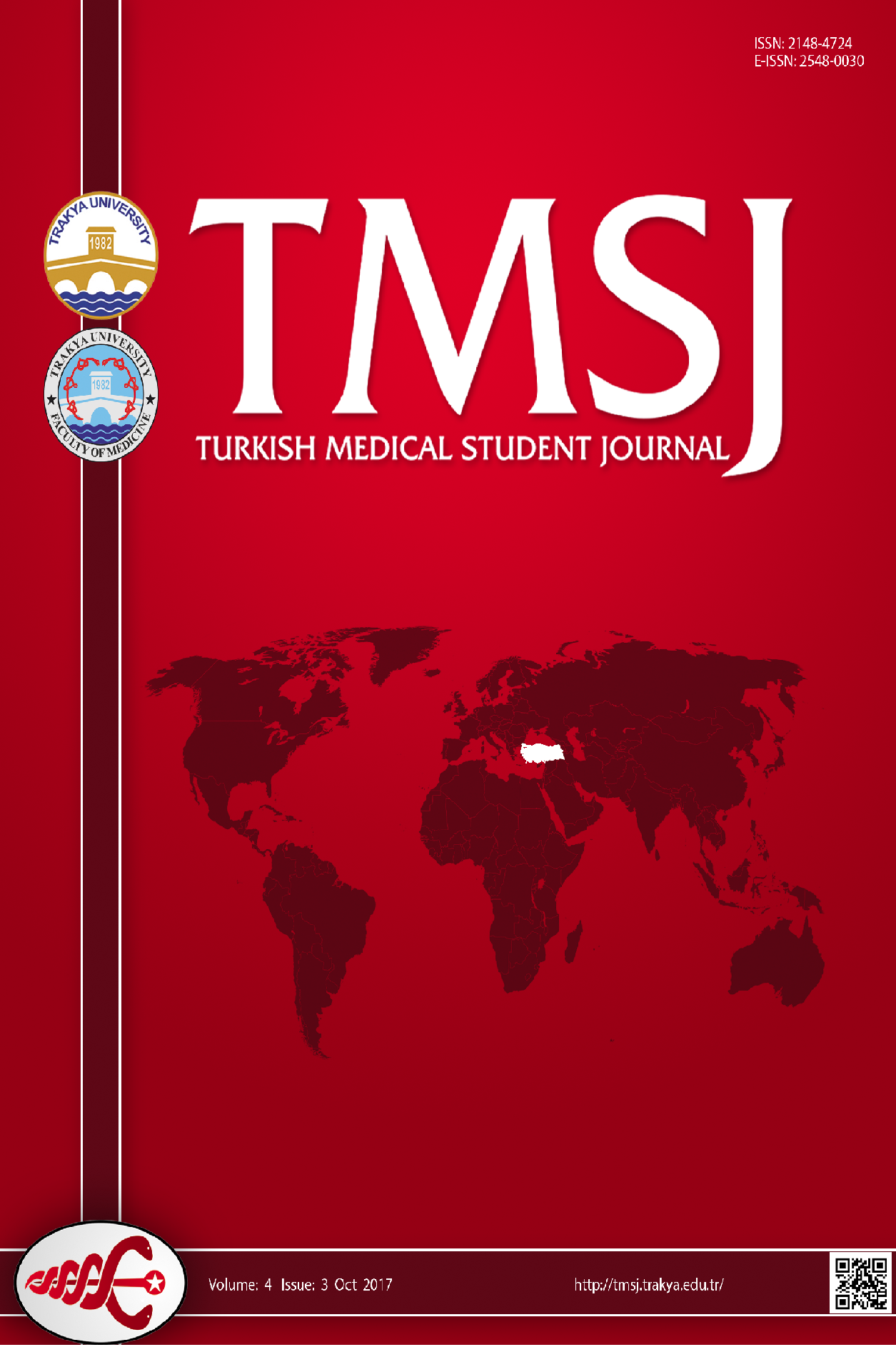
Turkish Medical Student Journal
Yazarlar: Fatih Erkan AKAY, Beliz KOÇYİĞİT, Amila KAFADAR, Beril AY, Kaan ÇİFCİBAŞI, Çağrı GİRİT, Nazlıcan KÜKÜRTCÜ, Berra KURTOĞLU, Bengisu GÜR, Serdar ÖZTRORA
Konular:Tıp
Anahtar Kelimeler:Medical student,Sexual orientation,Gender identity,LGBTQIA+
Özet: Aims: The aim of this multicentral study is to analyze the opinions and attitudes of medical students towards lesbian, gay, bi- sexual, transgender, queer, intersex, and asexual individuals. Methods: A total of 1116 medical students from 59 universities in Turkey, 1 from Bosnia and Herzegovina, and 7 universities from Germany have participated in this study. The questionnaire consisted of 23 multiple-choice questions and an open-ended question. Data about the comparison of 1st and 6th year medical students were analyzed using the Pearson Chi-Squared test and the Fisher Exact test in IBM SPSS version 23.0.00. Results: The mean age of the participants was 21.2 ± 2.1 years (range: 17-34 years). There were 693 female, 417 male, 3 nonbinary, and 1 qu- eer participants, and two did not declare their gender. There were 263 (23.6%) 1st year, 315 (28.3%) 2nd year, 179 (16.0%) 3rd year, 112 (10.0%) 4th year, 98 (8.8%) 5th year, and 139 (12.5%) 6th year students. There were 10 (0.9%) missing data. In the 15th question asking whether LGBTQIA+ individuals have the right to adoption or not, the 18th question asking if their school is providing education on sexual health, the 19th question asking if they consider themselves educated about safe sexual intercour- se as an individual, and the 22nd question asking if they think that LGBTQIA+ individuals are more prone to catching sexually transmitted diseases, there were a significant difference between 1st graders and 6th graders. Conclusion: PIn conclusion, thou- gh the majority of answers given indicate a positive approach towards LGBTQIA+ individuals, it can be stated that the attitude of medical students towards LGBTQIA+ individuals is by far suboptimal.